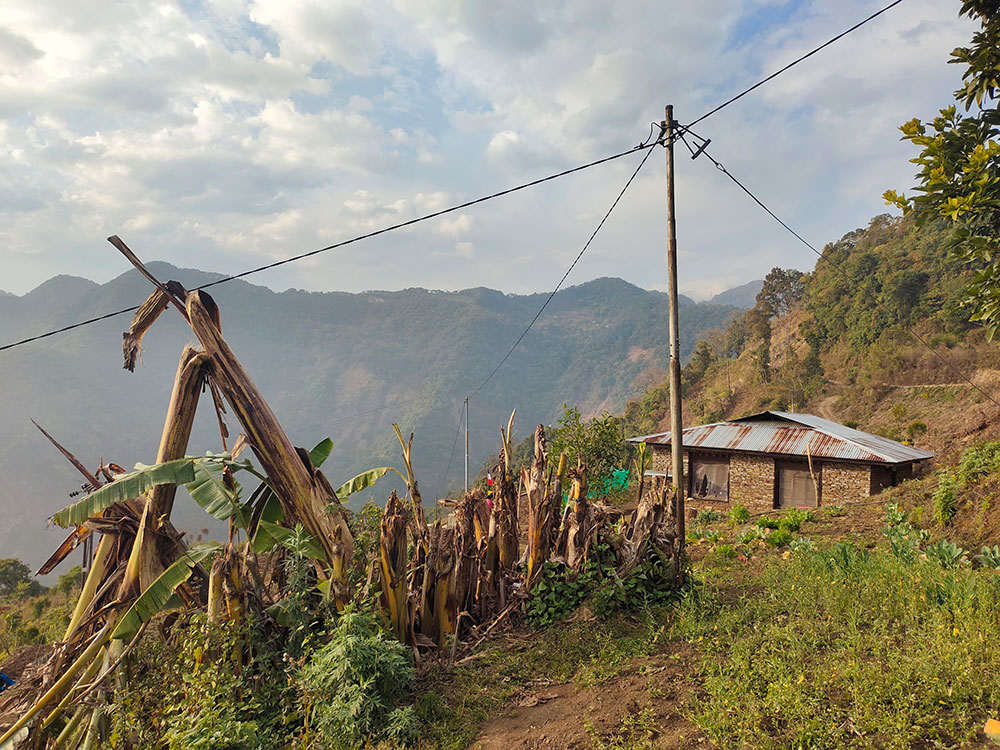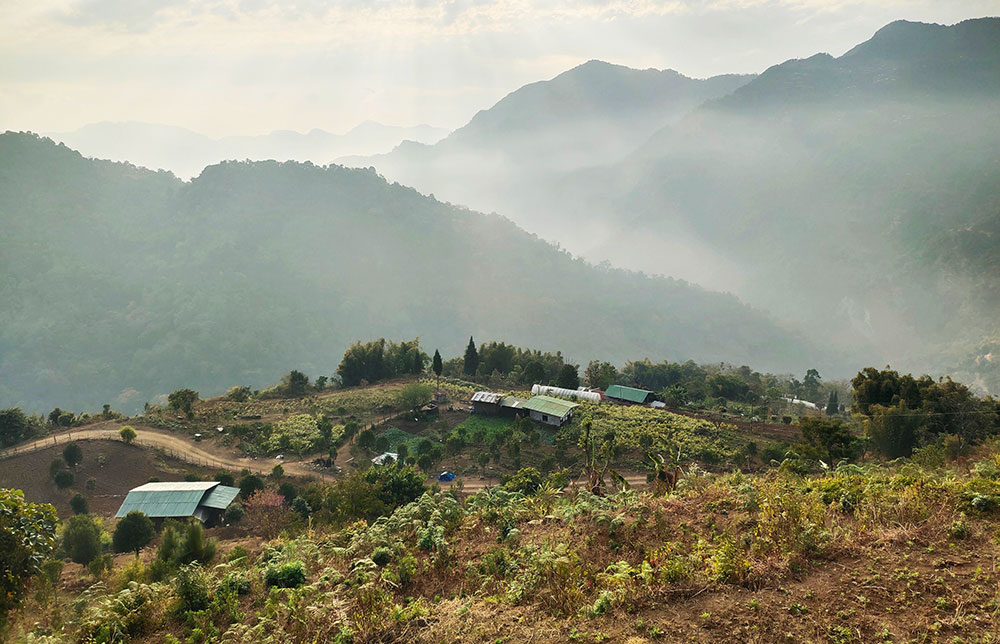Lhakpa Quendren
Tsirang — After a tusker destroyed two houses in Tsakaling under Patshaling gewog, Tsirang last month, 40-year-old Tashi Wangmo chopped down all nearby banana plants to deter elephants.
Elephants have been frequenting her village in recent years, but the property damage was the first incident in the village. This incident has created fear among the residents given the potential threats to their lives and property.
Other residents also removed their banana plants as a measure to deter elephants. The presence of bananas, which attract elephants as a food source, poses risks to their property and safety.

Tsakaling village has reported damage to property for the first time this year
“We have been aware of the presence of elephants in our village, as a mother and her calf regularly come to feed on bamboo above the farm road,” Tashi Wangmo said. “Now, we have been alerted about the presence of a lone elephant, which poses a risk if encountered.”
For years, farmers have been unable to tend citrus trees on their land along the river below their village due to the persistent human-wildlife conflict. The farmers have been unable to harvest mandarins, and the citrus trees are drying up, according to the residents. Every household owns land there.
“I have around 100 citrus trees on 78 decimal land. We encountered bears while clearing bushes, and after a fatal bear attack on our neighbour, we couldn’t tend to the trees,” Tashi Wangmo said. “Years later, when we tried to clear bushes again, we encountered elephants.”
This is not the end of their story. The presence of elephants in their village has also discouraged residents from rearing cattle, which once provided sufficient livestock produce for self-consumption if not for sale.
Pema Euden, a 64-year-old resident, has sent her six cattle, including two pregnant ones, to an animal sanctuary in Khotakha Dratshang out of fear of potential threats to them. “In the past, I used to rear cattle on the other side of the village.”
“We are having sleepless nights, remembering the incidents of human casualties caused by elephants in neighbouring dzongkhags,” she said, adding that the tusker has also damaged the drinking water pipes.
The farmers are also reluctant to cultivate maize, as it would attract elephants. They do not grow vegetables on a large scale due to the poor farm road, which remains impassable during the summer, and the expensive transportation costs.
Sharing a border with Singye Gewog of Sarpang, this remote village of Tsakaling has a population of about 45 people, with 22 households, of which 10 remain Gungtong. The residents, who resettled from Tsakaling in Mongar in 2008, call their village the same name.


